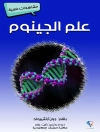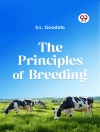Gene expression in cells follows a prescribed pathway that conforms to the Central Dogma; where the genetic information stored in DNA is transcribed into RNA and then expressed into proteins, which influences most plant traits. Plant salt tolerance research is directed towards identifying nucleotide variants that could contribute to tolerant phenotypes. This book comprehensively presents the current state of knowledge on plant salt tolerance through meticulous analysis of the processes operating across the Central Dogma. It provides a detailed account of modulation of gene expression through genome editing systems to achieve crop improvement against salt stress. It also provides state-of-the-art information on advances in breeding technologies of genome selection and accelerated de novo domestication for rapidly improving the salt tolerance of plants for global food security.
This book:
1.Provides a comprehensive coverage of plant salt tolerance mechanisms.
2.Spotlights various factors functioning along the Central Dogma pathway and their regulation in response to salinity.
3.Examines how these factors function to protect the plants from high salinity.
4.Highlights advances in cutting-edge breeding technologies for improving salt tolerance.
The book will be of particular value to students and researchers of plant genetics, molecular biology and physiology and those with an interest in salinity and salt tolerance.
Über den Autor
Dr. Shabir Hussain Wani Assistant Professor (Senior Scale) cum Scientist, Genetics and Plant Breeding at Mountain Research Centre for Field Crops, Khudwani, Sher-e-Kashmir University of Agricultural Sciences and Technology, Srinagar J&K, India. He received a Ph.D. degree in plant breeding and genetics on ‚transgenic rice for abiotic stress tolerance‘ from the Punjab Agricultural University Ludhiana, India. He then joined the Krishi Vigyan Kendra (Farm Science Centre) as program coordinator (i/c) at Senapati, Manipur, India. He teaches courses related to plant breeding, seed science and technology, and stress breeding and has published more than 200 papers/chapters in journals and books of international and national repute. He served as guest editor and reviews editor for journal Frontiers in Plant Science (2015-2018). He has also edited several books on current topics in crop improvement for abiotic stress tolerance published by Springer Nature and CRC press USA. His Ph.D. research fetched first prize in the North Zone Competition, at national level, in India during 2009. He also received Young Scientist Award (Agriculture) 2015 from Society for Plant Research, Meerut, India. He also served as visiting Scientist at Department of Plant Soil and Microbial Sciences, Michigan State University, USA under the UGC Raman Post-Doctoral Fellowship programme during 2016-17. He was elected as Fellow of Linnean Society of London 2017. Recently he was felicitated with Award for Excellence in Research 2020 from Novel Research Academy, Puducherry, India. Recently Dr. Wani was selected as member of Expert Working Group (EWG) Wheat Initiative for Adaptation of Wheat to Abiotic Stress (AWAS), Berlin, Germany during January 2021. He is also elected as Joint Secretary (Asia) for the Society for Plant Research, Vegetos (2021-2024). Currently, he is in charge of Wheat improvement programme at MRCFC Khudwani SKAUST Kashmir under the ICAR-All India Coordinated Improvement Project on Wheat and Barley.












